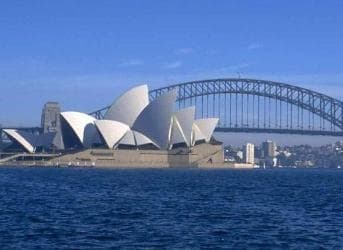Australia’s carbon tax of $23 a ton, due to be implemented beginning on 1 July, has been deeply unpopular with Australian industrialists since it was first proposed, who argue that it will make industry uncompetitive.
Now the opponents have a new ally in the form of a forecast produced by Bloomberg New Energy Finance, one of the world's leading emissions pricing forecasters, which is predicting that carbon prices could fall as low as $5 by 2020.
Bloomberg New Energy Finance last week briefed the nation's largest emitters of its projections at an Australian Industry Greenhouse Network meeting.
The Australian Industry Greenhouse Network (AIGN) members account for more than 90 percent of Australia's mining, manufacturing and energy sector. Its membership, which includes some of the nation's biggest companies, including BlueScope Steel, Xstrata Coal and Rio Tinto, argues that the government’s carbon tax is a direct threat to Australia’s $120 billion electricity and gas industry.
The AIGN is further concerned that the government is working on a "national energy savings initiative," which it regards as a scheme that saddles energy retailers with new obligations. Furthermore, the Australian Industry Greenhouse Network states that the energy sector is already overburdened, as Victoria, South Australia and New South Wales already operate separate and inconsistent programs that already require energy and gas retailers to purchase and surrender energy efficiency certificates.
The AIGN has stated that it would be concerned if the government introduced a new scheme "on the grounds that it provided national consistency, which instead could result in a general increase" in electricity and natural gas prices, which at end could result in the energy industry subsidizing other sectors of the economy.
But industry’s negotiating position has been severely undercut by the release of a new study that found that since 1995 Australia’s dependence on polluting activities had grown relative to almost every other major economy. The study, backed by the Climate Institute think tank and multinational General Electric, ranked Australia 16th out of 19 countries in being ready to deal with a low-carbon world, plummeting seven positions from its 1995 ranking.
Climate Institute deputy chief executive Erwin Jackson noted, "Among other things our energy sector is dominated by coal, our use of oil is inefficient, we have high rates of deforestation and our export industries are based on low-value-added resources and not high-value-add technologies." The report warns that Australia is falling behind the rest of the world in its efforts to cut emissions, adding that many other countries, including Britain ($24-$30), Sweden ($130), Switzerland ($30-$60), Norway ($53) and Ireland ($24-$37) have higher prices than Australia's $23 starting price.
The feeling against the carbon tax is not unanimous across Australian industry, however. In a major speech on 15 September 2010 Australia’s BHP Billiton, the world's biggest mining company, CEO chief executive Marius Kloppers urged the government to implement a carbon tax before any international agreement in order to protect Australia's long-term economic interests. Kloppers told the Australian British Chamber of Commerce, "We do believe that such a global initiative will eventually come and, when it does, Australia will need to have acted ahead of it to maintain its competitiveness. Carbon emissions need to have a cost impact in order to cause the consumer and companies to change behavior and favor low-carbon alternatives. We all recognize this is a politically charged subject. No government relishes telling people that things need to cost more."
So, the battle lines are drawn and some peak industry bodies are this week expected to discuss renewed pressure on the government to either drop the $23 carbon price to $10 or delay the scheme altogether. A number of analysts are predicting that Australian price could fall back to the government-imposed minimum of $15 a ton when international trading of carbon permits starts in 2015.
ADVERTISEMENT
In the meantime, the only certainty is that lobbyists opposed to the carbon tax will deploy across Canberra.
By. John C.K. Daly of OIlprice.com


















